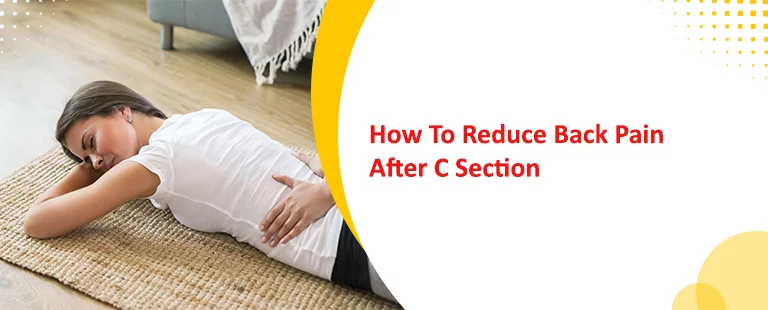Dealing with arthritis can feel like a steady battle. The morning stiffness, the persistent ache in your joints, and the way it can turn simple tasks like opening a jar or climbing stairs into a monumental effort. If this sounds familiar, you are not alone. Arthritis impacts over 180 million people in India, making it one of the most common health challenges in the country. But here's the good news: you have more power over your joint pain than you think.
Arthritis is not a single disease but a general term for conditions that cause joint inflammation, leading to pain, stiffness, and swelling. While there are over 100 types, osteoarthritis and rheumatoid arthritis are the most prevalent.
This guide is designed to be your practical, no-fluff playbook for managing arthritis. We'll break down simple, effective lifestyle changes that can significantly lessen your symptoms and enhance your quality of life. Think of these strategies as your daily toolkit, designed to work alongside professional medical advice. While these tips are powerful, they are most effective when paired with a proper diagnosis and a comprehensive plan from a specialist offering arthritis treatment in India.
Understanding Your Opponent: What Exactly Is Arthritis?
Before you can effectively manage arthritis, it helps to know what you're up against. At its core,
arthritis is inflammation of one or more of your joints. This inflammation breaks down the
cartilage—the smooth, rubbery tissue that cushions the rears of your bones and allows them to move
without friction. When the cartilage wears away, bone rubs against bone, inducing pain, swelling,
and reduced movement.
The Most Common Types: Osteoarthritis vs. Rheumatoid Arthritis
While many types of arthritis exist, two are particularly common:
- Osteoarthritis (OA): Usually called "wear and tear" arthritis, OA is the most common form. It occurs when the protective cartilage on the ends of your bones wears down over time. It normally affects weight-bearing joints like the knees, hips, and spine, but can also impact fingers and toes.
- Rheumatoid Arthritis (RA): RA is a
different beast altogether. It's an autoimmune disorder, which means your immune system
wrongly attacks your own body's tissues. In the case of RA, it attacks the lining of your
joints (the synovium), causing painful swelling that can ultimately direct to bone erosion
and joint deformity.
Why Early Diagnosis is Your Best Move
Ignoring persistent joint pain is a gamble you can't afford to take. The sooner you get a precise
diagnosis, the sooner you can start an effective management plan to slow the disease's progression
and protect your joints from further damage. Getting a proper diagnosis from a specialist
for joint pain
treatment in Hyderabad can fundamentally change your life's trajectory.
Top-tier hospitals across the country have dedicated rheumatology and orthopaedics departments with
the expertise to provide a precise diagnosis and a structured treatment plan.
The Foundation: Your Anti-Inflammatory Diet
One of the most powerful tools in your arthritis-fighting arsenal is your fork. The food you consume can either fuel inflammation or help to calm it. Adopting an anti-inflammatory diet is a cornerstone of managing arthritis symptoms naturally.
Foods to Embrace: Your Kitchen Pharmacy
Think of your kitchen as a pharmacy stocked with natural pain-relievers. Focus on including these foods into your daily meals:
- Fatty Fish: Salmon, mackerel, and sardines are affluent in omega-3 fatty acids, which have full anti-inflammatory effects.
- Nuts and Seeds: Walnuts, almonds, and flaxseeds are excellent sources of healthy fats and antioxidants.
- Colourful Fruits & Veggies: Berries, leafy greens like spinach, broccoli, and carrots are loaded with antioxidants and vitamins that fight inflammation.
- Olive Oil: Extra virgin olive oil contains oleocanthal, a compound that has effects similar to non-steroidal anti-inflammatory drugs (NSAIDs).
- Indian Spices: Turmeric (containing
curcumin) and ginger are traditional Indian spices celebrated for their powerful
anti-inflammatory benefits. A little haldi in your milk or sabzi goes a long way.
Foods to Avoid (or Limit): The Inflammation Triggers
Just as some foods can benefit, others can hurt. Try to limit your intake of these inflammation-promoting items:
- Sugar and Refined Carbs: Sweets, white bread, and pastries can trigger the release of inflammatory messengers called cytokines.
- Fried and Processed Foods: These often contain trans fats, which are notorious for causing inflammation.
- Red and Processed Meats: High consumption is linked to increased levels of inflammatory markers in the body.
- Excessive Alcohol: While moderate
consumption might be okay for some, excessive alcohol use can exacerbate arthritis symptoms
and is generally advised against for maintaining bone health.
The Hydration Rule: Why Water Is Your Joints Best Friend
Never underestimate the power of water. Your joint cartilage is made up of about 80% water. Staying well-hydrated helps keep your cartilage healthy and lubricated, allowing your joints to move more smoothly. Aim for 8-10 glasses of water a day.
According to a 2024 report from the Arthritis Foundation, maintaining a healthy, balanced diet is
crucial not only for managing inflammation but also for weight control, which directly impacts joint
health.
Motion is Lotion: The Power of Gentle Exercise
When your joints hurt, your first instinct might be to stop moving. This is a critical mistake.
Inactivity can make your joints even stiffer and painful. The right kind of movement lubricates the
joints and strengthens the muscles around them, which act as crucial shock absorbers.
Why Most People Get Exercise for Arthritis Wrong
Here's a contrarian thought: the biggest mistake people with arthritis make isn't avoiding exercise,
but doing the wrong kind or doing too much too soon. The goal is not to become a marathon runner
overnight. The goal is gentle, consistent movement that builds strength and flexibility without
flaring up your joints. It's about finding the "sweet spot" where you are challenging your body
enough to see benefits, but not so much that you cause pain.
The "Big Three" Exercises for Arthritis Management
A well-rounded arthritis exercise program should include three types of activities:
- Range-of-Motion (Stretching): These are
gentle stretching and movement exercises that take your joints via their full range of
motion. Think of simple shoulder rolls, wrist bends, and ankle rotations.
- Benefit: Reduces stiffness and maintains normal joint movement.
- Strengthening Exercises: These activities
help build strong muscles that support and protect your joints. You don't need heavy
weights; simple bodyweight exercises like wall squats or leg raises are highly
effective.
- Benefit: Increases joint stability and reduces the load on your cartilage.
- Aerobic/Endurance Exercise: These
activities make your heart and lungs work harder. Low-impact options are best for people
with arthritis.
- Benefit: Helps with weight control, improves sleep, boosts energy, and mood.
- Best Choices: Brisk walking, swimming, water aerobics, and cycling.
For a personalized and safe workout plan, consulting a physiotherapist is a game-changer.
Physiotherapy and rehabilitation services are a core part of comprehensive arthritis
treatment in Hyderabad and are available at most leading
hospitals.
The Weight Factor: How Losing a Little Means Gaining a Lot
Your body weight plays a massive role in the fitness of your joints, especially your knees, hips, and
back. Think of it this way: your joints are like the shock absorbers on a car. The more weight they
have to carry, the faster they wear out.
The physics is startling. For every 1 kilogram of excess weight you carry, you put about 4 kilograms
of extra pressure on your knees every time you take a step. Losing just 5 kilograms can reduce the
load on your knee joint by 20 kilograms!
Most experts agree that for individuals with knee osteoarthritis who are overweight, weight
management is the single most effective non-drug treatment for reducing pain and improving
function.
This isn't about drastic diets. By focusing on the anti-inflammatory eating plan and incorporating
gentle exercise as described above, you will naturally move towards a healthier weight, giving your
joints a much-needed break.
Beyond Diet and Exercise: Daily Hacks and Advanced Therapies
Managing arthritis effectively involves a holistic approach. Beyond what you eat and how you move,
several other strategies can provide significant relief and make your daily life easier.
Mastering Heat and Cold Therapy
Heat and cold are simple, inexpensive, and effective tools for pain relief. The key is knowing when to use which.
This One Habit Can Save Your Joints: Ergonomics
Ergonomics is simply the science of fitting a job to the person. In practice, it means setting up your environment to reduce strain on your joints. This is one of the most overlooked but impactful changes you can make.
- At Your Desk: Adjust your chair so your feet are flat on the floor and your knees are at a 90-degree angle. Use a wrist rest for your keyboard.
- In the Kitchen: Use electric can openers and jar openers. Use lightweight pots and pans with ergonomic handles.
- Around the House: Use long-handled dustpans and brushes to avoid bending. When lifting, use the strong muscles in your legs, not your back.
Many specialized centres now offer ergonomic training as part of their patient care programs,
recognizing its importance in long-term joint health.
The Importance of Quality Sleep
Pain can disrupt bedtime, and poor sleep can make pain worse. It's a vicious cycle. Prioritizing sleep is crucial for managing arthritis. When you sleep, your body works to repair itself.
- Create a Routine: Go to bed and awake around the same time every day.
- Optimize Your Bedroom: Make it dark, quiet, and cool.
- Power Down: Avoid screens (phones, TVs,
laptops) for at least an hour before sleeping, as the blue light can hinder with sleep
hormones.
When to Seek Professional Help: Your Guide to Arthritis Treatment in India
Lifestyle changes are a powerful part of your management plan, but they are not a substitute for
professional medical care. It is vital to have a healthcare professional monitor your condition and
guide your treatment.
Signs You Need to See a Doctor Now
Don't delay seeking help if you experience:
- Sudden, severe joint pain and swelling.
- A joint that looks red or feels hot to the touch.
- Incapability to move a joint or bear weight on it.
- Fever, fatigue, or unexplained weight loss accompany your joint pain.
- Pain that consistently disrupts your sleep or daily
activities.
Finding the Right "Joint Pain Treatment Near Me"
When you search for joint pain treatment near me, you'll likely encounter two types of specialists:
- Rheumatologist: A doctor who specializes in analyzing and treating arthritis and other diseases of the joints, muscles, and bones. They are typically the primary doctor for inflammatory arthritis, like RA.
- Orthopedic Surgeon: A surgeon who
specializes in problems of the musculoskeletal system. You might see an orthopedist if your
condition requires surgery, such as a joint replacement.
Finding the right arthritis treatment in
Hyderabad or any major city in India is easier than ever.
Your Path Forward
Managing arthritis is a marathon, not a sprint. It's about making small, consistent, and intelligent
choices every single day that add up to a big difference in your pain levels and overall quality of
life. You are in the driver's seat of your health journey, and every positive change you make is a
victory.
Which of these changes will you start with today? For a comprehensive evaluation and to explore the full spectrum of modern options for joint pain treatment in India, booking a consultation with a specialist is your most important next step. Your joints will thank you for it.




